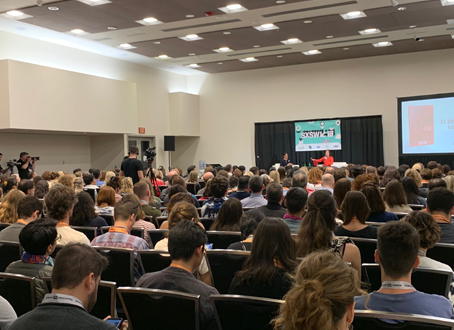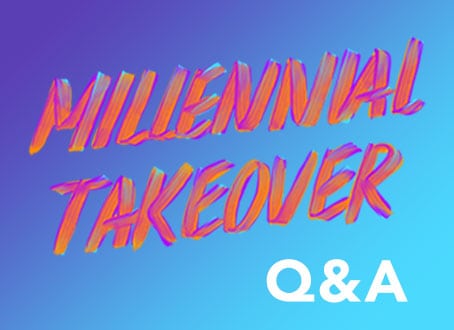This interview is the sixth of nine in a series of Q and A’s with leading changemakers, representing the Millennial generation who are working across sectors to be the force for change on the issues they care about most.
Tell as a little bit about yourself and your work
I founded Sustainable Ocean Alliance (SOA) as a college-room idea, spurred from a UN convening on oceans that I had been invited to as a college freshman. Five years later, I’ve built SOA as a global organization that cultivates and accelerates innovative solutions to protect and sustain the health of the ocean. SOA has created the world’s largest network of young ocean leaders—through establishing a presence in over 50 countries; launching the first-ever Ocean Solutions Accelerator to support ocean start-ups; and partnering with corporations such as Lindblad Expeditions and The Economist, NGOs and governments, including Indonesia and the European Union, to develop technological solutions that can address the greatest threats facing our planet.
What problem keeps you up at night? What do you think it will take to solve it?
The ocean is dying, to put it simply. The degradation to our ocean and the limited time we have to curve permanent changes to our climate and our ocean keeps me up endlessly. It will take diversity and inclusion across a variety of stakeholders and multiple sectors, not only civil servants making decisions, but business, technology, government and populations, to create long-lasting sustainable solutions.
With technology, the barriers to access information and stories, and move to taking action have continued to come down—how do you think that has influenced the way you and others take part in the environmental protection movement?
Young people now have unlimited access and connectivity across every corner of the world, allowing them to share their ideas and projects, and to help each other to protect the environment, and specifically in our case, the ocean. With Millennials being the most technologically-savvy and connected generation. It’s a generation that believes in transparency and social media has played an even bigger role in allowing young people to raise their voices to be heard. The conversation is no longer behind closed doors at high-level meetings, but out in the open for all to participate.
Why do you think it’s important and how do you think that causes can meet young people where they are in understanding their unique perspectives on the role of businesses to protect the planet?
Our model is unique in the sense that we ask young people about their passions, skill-sets and interests, as opposed to dictating what the solution is. They are the ones who come up with their ideas locally, and we support their efforts on a local and global scale.
What have been some of your biggest challenges?
Raising funds has been a challenge, especially being in a niche like the ocean space, but also with having a different model of how we should approach ocean sustainability – one that focuses on youth engagement and entrepreneurship. It’s been hard to find funders that understand the value and importance of engaging young people, and empowering them to develop their projects whether it is through the arts, humanities or entrepreneurship.
What has been your favorite success story?
My favorite success story has been taking an idea and building it into a global organization. There was so much risk associated with taking this leap of faith because it had not been done before through this avenue. Now with the creation of the organization, we have seen how 5 different ocean technology startups have been able to create a product in the marketplace that will strongly benefit the ocean.
What is one thing you think everyone should know about your generation?
Millennials grew up with climate change as a constant reminder of what the world will look like if we don’t act with urgency. It is because we’ve grown up in this ecosystem – seeing the world change before our eyes – that we as a generation understand that we have to be bold, innovative and build communities around our ideas in order to make them come to life.
What’s next for you? What are some of your dreams and goals?
We are continuing to build SOA into a global organization, with dreams of opening various regional offices, expanding our team, increasing our number of youth leaders and accelerating more ocean technology companies.
How can people interested in your cause learn more?
Visit www.soalliance.org for more information, and join us as a youth leader!
We will be featuring interviews from each of the leaders representing the Millennial generation on key movements and issues today who participated in our recent 10-day Instagram takeover. Stay tuned for the rest of this series and see their stories as part of an infographic detailing ten key traits about how Millennials engage with causes, based on our ten years of research, here.





